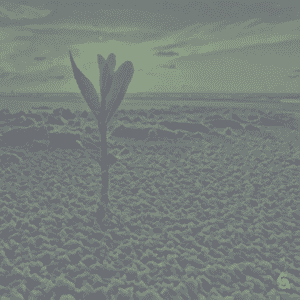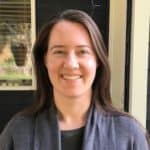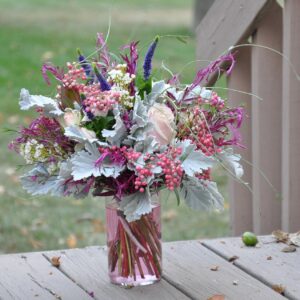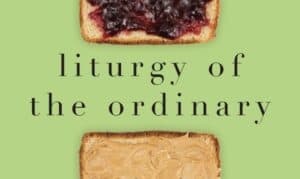 Editor’s Note: This post is part of a 4-part series for Advent 2022 by Liz Cooledge-Jenkins
Editor’s Note: This post is part of a 4-part series for Advent 2022 by Liz Cooledge-Jenkins
God,
Power runs through our world
in such perverse ways.
We need new leaders,
the kind who have been moving and shaking
and healing and breaking
chains all along.
These are the ones we want to listen to.
Help us hear the honest ones.
Help us not airbrush over their devastation
and try to make it
look okay.
God, unbind us.
Keep exposing the nakedness of the emperor
until we finally get it.
Heal us of the bent ways we seek authority
and assume others to be authoritative.
Unbend our desires.
Straighten our spines.
Sometimes it seems hopeless.
And yet we light a candle that means “hope.”
We hope for the courage to be honest
and to receive others’ honesty gratefully,
not threatened by it.
We hope to access the deepest places in our souls
and move from them.
We hope not to run out of hope entirely.
And so we look for you, still, God.
Amen.
Hope does not live in a vacuum. It is tied to power, change, honesty, politics, faith, courage. People of courageous faith are looking for a kind of hope that is real—a hope that does not require denying what is real.
For many of us, this courageous, eyes-wide-open kind of hope does not come easily. Musician, writer, and activist Andre Henry put it well: “All of the hopeful people I knew had a tendency to minimize problems in order to stay positive. It seemed that the only people I knew who had hope weren’t paying close attention to what’s going on in the world.”
There are so many violent, horrific things going on in our world. People who are paying attention often struggle with hope. And yet, without some sense of hope, how do we move forward? How do we keep going?
In the season of Advent, we remember that we are waiting for God’s arrival in our world. We are waiting for hope. When will hope come? Where will it appear? We don’t know exactly, but perhaps we can imagine that—in some form, somewhere, somehow—it might indeed appear.
Maybe that is enough. Maybe the hope for hope is itself a form of hope.
I find myself thinking about the different places people find hope. Yes, hope comes in the form of Jesus, birthed into our world in a barn. Yes, and. What this means to us—what we hope for, and what feels hopeful to us—can look so many different ways.
What does it mean to have hope? Where is hope found? For writer and activist Rebecca Solnit, “Hope locates itself in the premises that we don’t know what will happen and that in the spaciousness of uncertainty is room to act.”
Hope is found in the spaciousness of uncertainty. There is room for us to act, to influence—to, in Andre Henry’s words, learn to articulate our “vision of how things ought to be,” and to build it. As Henry writes, “it’s hard to build a world we haven’t envisioned.”
Hope comes with vision. And it comes as we seek to build a new kind of world. Hope comes as we act.
For speaker and writer Danté Stewart, drawing on Hebrews 11:1, faith is “the substance of our hope.” And what that looks like for Stewart, reflecting on his Black community, is “our weary feet and our weary souls and our bruised bodies finding a way to dance and to leap and to rejoice when the world was burning.”
Hope is finding a way to dance when the world is burning. Hope is present when people who have suffered and continue to suffer find strength to live and continue to live.
Stewart goes on to write, “The hope was in the struggle, God was in the hope, and these bodies will not always suffer.” Hope looks forward to a better day.
Hope is in the struggle for justice for Black lives. Hope is in wrestling with the powers-that-be and not accepting anything less than full, flourishing life. Hope comes alive where there are beloved communities of equals—or the will to build these communities.
Writer and womanist Audre Lorde saw hope in the deep, dark places within ourselves, and especially within women. “These places of possibility within ourselves are dark,” she writes, “because they are ancient and hidden; they have survived and grown strong through that darkness. Within these deep places, each one of us holds an incredible reserve of creativity and power, of unexamined and unrecorded emotion and feeling.”
Hope rises when we tap into the reserves of creativity and power deep within us. Hope is dark, ancient, deep. Hope dwells in places of possibility.
This Advent season we search for hope, hoping that this search will be rewarded. We open ourselves to the surprising places hope might be found.
For social psychologist and public theologian Christena Cleveland, Black Madonnas became a source of hope. As she recounts in her book God is a Black Woman, Cleveland delved into the world of Black Madonnas after her hope in the white male evangelical god died.
“Within seconds of viewing photos of Black Madonnas,” Cleveland writes, “my gut shifted from terror to hope. Before I even read a word about the Black Madonna, my soul immediately recognized that these photos and drawings of ancient Black Madonnas declared a truth about my own sacredness and gave birth to a new understanding of God.”
Her gut shifted from terror to hope. Where have we experienced this kind of gut-level shift? What truths do our souls instinctively recognize? What feels hopeful now?
These are the questions we can ask and keep asking this Advent season. We can keep coming back to them as often as we need to. In God’s presence, there is room for all of that.
May God breathe new hope into your soul and your community this Advent. And may God’s Spirit sustain you to keep hoping for hope when hope is nowhere to be found.
 Liz Cooledge Jenkins is a writer, preacher, chaplain, and former college campus minister who lives in Burien, WA. She has a BS in Symbolic Systems from Stanford University and an MDiv from Fuller Theological Seminary. She regularly posts justice-minded biblical reflections, poems, “super chill book reviews,” and more at lizcooledgejenkins.com; she can also be found on FB (Liz Cooledge Jenkins, Writer) and Instagram (@lizcoolj). Her sermon on Ruth and Boaz was included in Sojourners’ collection of immigration sermons, El Camino.
Liz Cooledge Jenkins is a writer, preacher, chaplain, and former college campus minister who lives in Burien, WA. She has a BS in Symbolic Systems from Stanford University and an MDiv from Fuller Theological Seminary. She regularly posts justice-minded biblical reflections, poems, “super chill book reviews,” and more at lizcooledgejenkins.com; she can also be found on FB (Liz Cooledge Jenkins, Writer) and Instagram (@lizcoolj). Her sermon on Ruth and Boaz was included in Sojourners’ collection of immigration sermons, El Camino.


